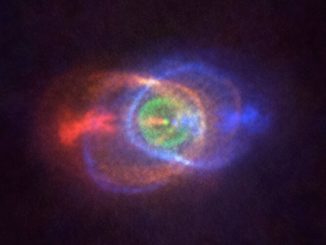
binary star system

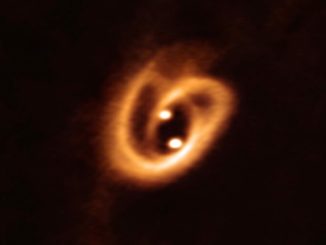
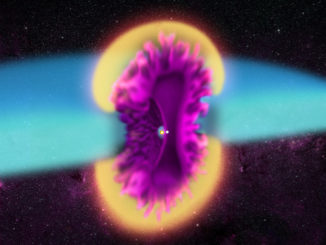
Two stars, three dimensions, and oodles of energy
For decades, astronomers have known about irregular outbursts from the double star system V745 Sco, which is located about 25,000 light-years from Earth. Astronomers were caught by surprise when previous outbursts from this system were seen in 1937 and 1989. When the system erupted on February 6, 2014, however, scientists were ready to observe the event with a suite of telescopes including NASA’s Chandra X-ray Observatory.

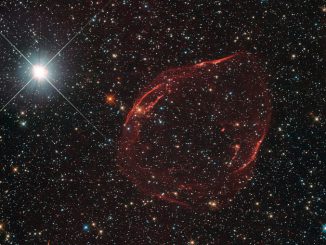
Hubble views supernova shrapnel
Several thousand years ago, a star some 160,000 light-years away from us exploded, scattering stellar shrapnel across the sky. The aftermath of this Type Ia supernova is shown here in this striking image from the NASA/ESA Hubble Space Telescope. The exploding star was a white dwarf located in the Large Magellanic Cloud, a close neighbouring galaxy.
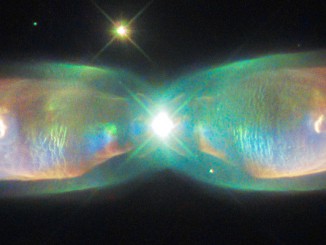
Hubble’s new view of the Butterfly Nebula
This new NASA/ESA Hubble Space Telescope image of the Twin Jet Nebula highlights the shimmering colours, shells and knots of expanding gas in striking detail. Two iridescent lobes of material stretch outwards from a central star system. Within these lobes two huge jets of gas are streaming from the star system at speeds in excess of one million kilometres per hour.
